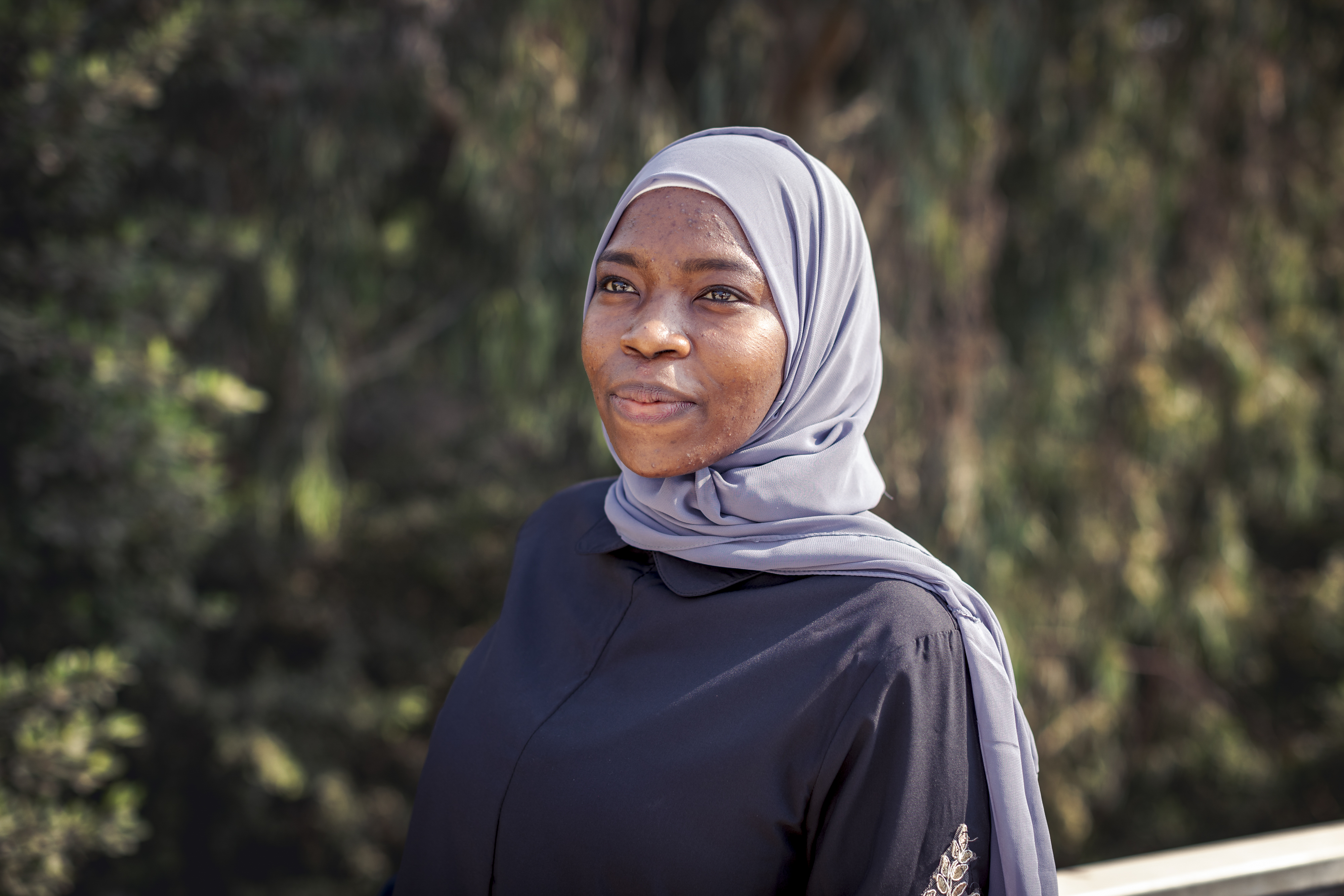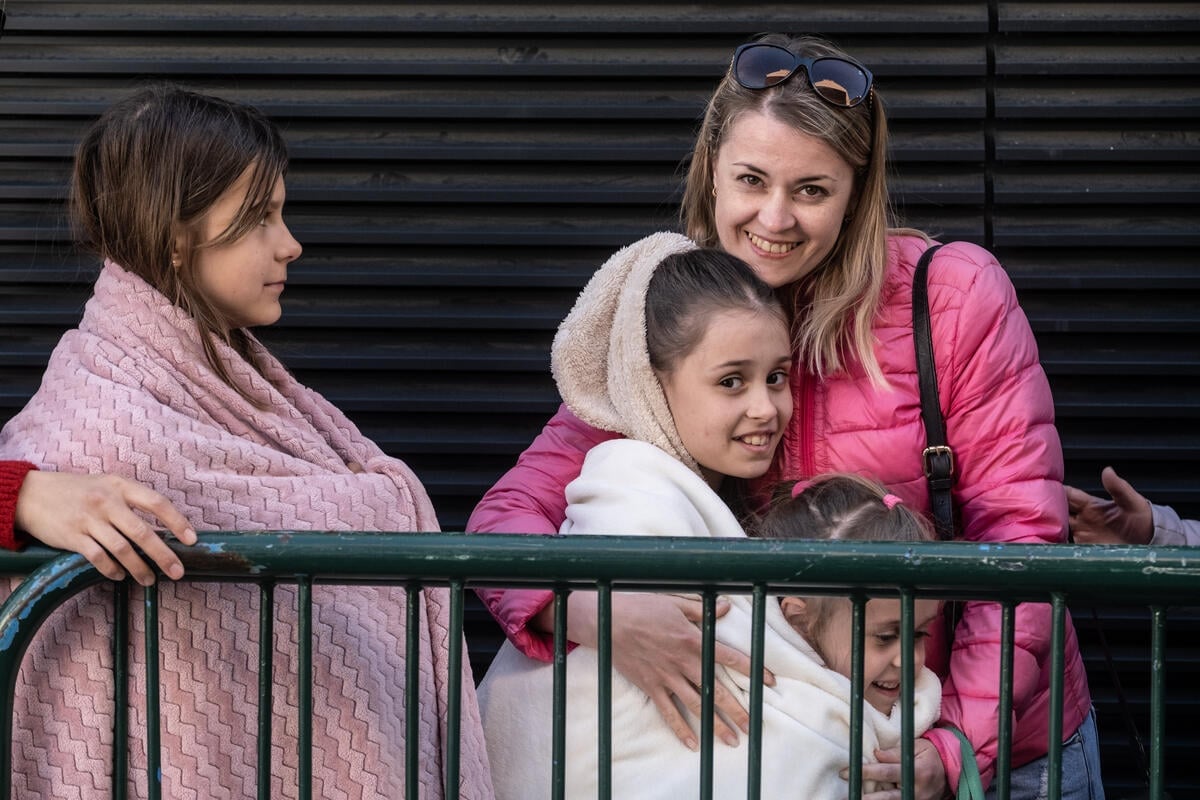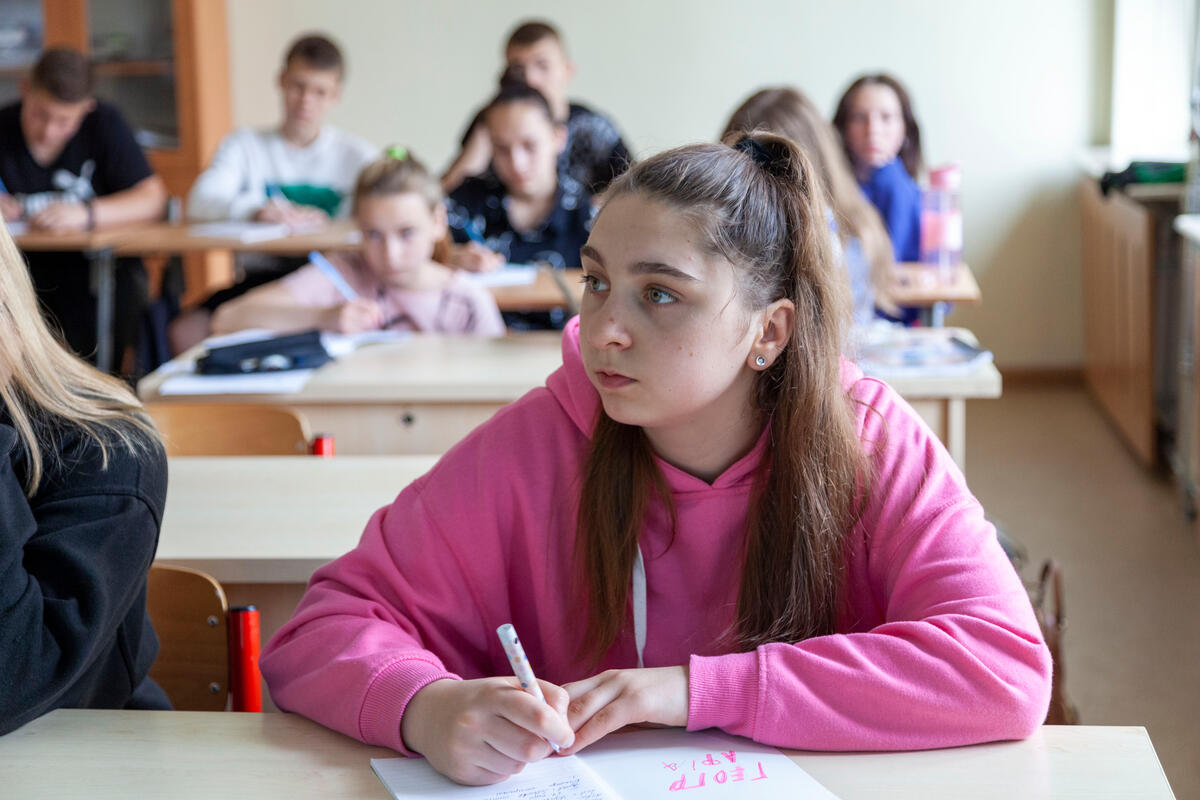Clinton Global Initiative: From angry young man to model student
Clinton Global Initiative: From angry young man to model student

BOGOTA, Colombia, September 20 (UNHCR) - When he joined the Learning Circle a few months ago, 15-year-old Sterlin could hardly read and write. He was ashamed that even the youngest kids knew much more than him.
"But I stuck to it for my grandmother, she has done everything for me and I want to get her out of here so she can have a better life. But first, I need to study to get a good job," he explains.
His neighbourhood, an urban sprawl of plastic shacks, wooden huts and small brick houses in the foothills of the Andes, is one of the poorest in this suburb of the Colombian capital, Bogota. Many of the people in Altos de Cazucá have fled violence elsewhere in the country; many of the children grew up amid the armed conflict.
Sterlin used to live in a small Afro-Colombian village on the Pacific Coast with his grandmother. The community had one teacher and his grandmother insisted that he should go to school, even though she had no money to pay the fees. It was just a few dollars a year, but still too high for many families in the rural areas.
So throughout his childhood, Sterlin studied on and off for a few weeks or months at a time, the money never stretching the whole year. "I didn't mind, because the other children were all doing the same," he says. He liked working in the fields to help his grandmother, whom he calls "mama" because she is the one who brought him up.
When Sterlin was 11, the whole village had to flee increasing violence between rival armed groups. He went to live with his parents in a large port city further up the coast, and remembers it as the worst time of his life: "My father did not want me around and did not want to waste money to send me to school."
One of the irregular armed groups in the city tried to recruit him and he fled again, this time to join his grandmother in Bogota. It took him a while to work up the courage to join the Learning Circle, one of five run with UNHCR support in this suburb to help children who have fallen behind in their schooling because of poverty, armed conflict or other problems.
Sterlin's education had been so disrupted that he had to start at 3rd Grade, roughly the level of an eight-year-old child. "I was fighting with everyone because I thought they were all laughing at me," he says. "Now I stopped because the teacher explained to me I was the eldest and should set the example. I don't want to be a violent man like my father."
The teenager has made so much progress in a few months that his teachers now hope that he can get into mainstream education soon. His dream is to become a computer engineer. "I have never used a computer," he admits, "but I want to learn." With his first salary, he wants to install a water pump in the house, to make his grandmother's life a bit easier.
UNHCR is working to help young refugees like Sterlin get access to a decent education. The internet-based ninemillion campaign hopes to raise US$220 million for refugee education.
The refugee agency will use next week's meeting of the Clinton Global Initiative in New York to promote the campaign, which aims to provide education for nine million refugee children by 2010.









